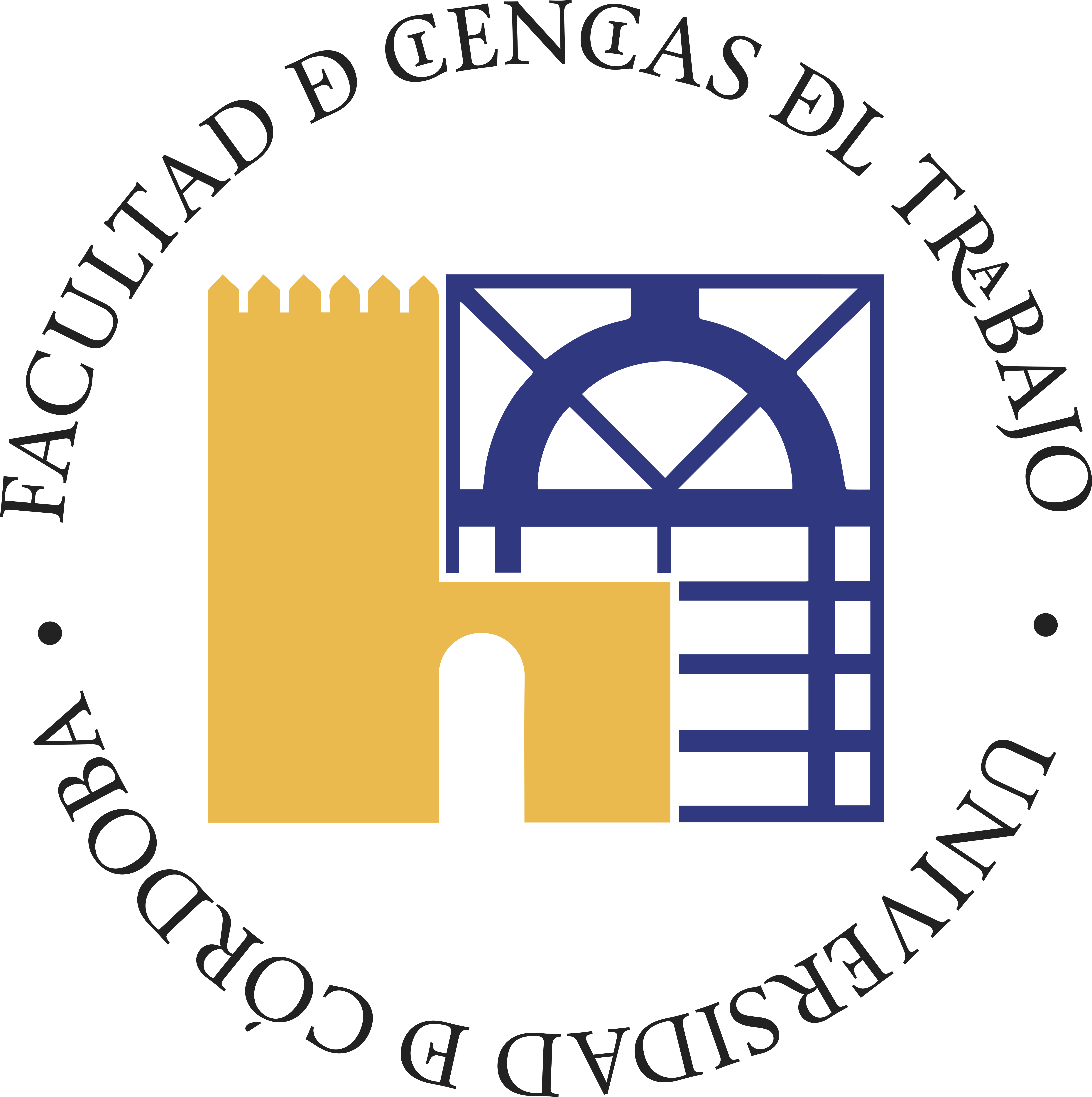General Information
| Degree Name | Graduate in Tourism |
| Number of new student places offered | 90 |
| Minimum number of credits for enrollment | 24 credits |
| Faculty and location | Faculty of Labour Sciences |
| Publication in BOE | anuary 29, 2015 / BOE No. 25 / Download |
| Year of title implementation | 2010-2011 |
| Number of courses in the implementation phase | 1st, 2nd, 3rd, and 4th (2013-2014) |
| Field of knowledge | Social and Legal Sciences |
| Program Duration | 240 credits / 4 years |
| Type of teaching | On-site |
| Languages used | Spanish, modern language (English, German/French) |
Degree Justification
The Degree in Tourism has a unique and specific professional, scientific, and educational profile. Its multidimensional nature means that the study of tourism has been approached from various scientific perspectives, including territorial planning, economic analysis, business management, service marketing, cultural and psychosocial aspects of the phenomenon, and the legal regulations governing the activity, among others.
The globalization of tourism activities has created new markets and, therefore, increased competitiveness among destinations, which must be won by offering new and better products and services. This requires professionals with a high level of qualification for both public and private management. Therefore, the existence of a Degree in Tourism is necessary to train professionals who will work in the tourism sector in the following areas
- Accommodation
- Restaurants
- Intermediary services
- Transport and logistics
- Public destination planning and management
- Tourism products and activities
- Education, research, and consultancy
Career Opportunities
Academic Opportunities
Graduates in Tourism will have access to further studies. This includes postgraduate programs and continuing education courses at the Faculty of Labour Sciences closely related to the degree, as well as other postgraduate degrees, master's programs, and doctoral programs at the University of Córdoba.
Professional Opportunities
The Degree in Tourism offers graduates a wide range of career opportunities:
- Working in the private sector within any area of tourism businesses (accommodation, restaurants, intermediary services, and transport)
- Working in public institutions as management or planning specialists, responsible for tourism development programs, tourism development agents, or directors/technicians of institutions promoting tourism products
- Working in tourism consultancy
- Teaching (both in secondary education and at universities)
- Conducting research.
Competencies
Basic Competencies
- Analytical and synthesis skills
- Organizational and planning skills
- Oral and written communication in Spanish
- Teamwork
- Interpersonal skills
- Critical thinking
- Autonomous learning
- Ethical commitment to contribute to a fairer society that respects fundamental rights
- Knowledge and skills for successfully pursuing postgraduate studieso
University Competencies
- Proficiency in a foreign language
- Mastering ICT skills
- Fostering active job search habits and entrepreneurial skills
Specific Competencies
- Understand the principles and impacts of tourism: spatial-territorial, social, cultural, political, labour, and economic dimensions
- Understand the dynamic and evolving nature of tourism and the leisure society
- Analyze and understand the social, economic, and environmental impacts of tourism
- Understand the main political-administrative structures related to tourism and the key stakeholders in the tourism industry
- Understand the legal framework governing tourism activities
- Ability to follow procedures before institutions
- Select, analyze, manage, interpret, and synthesize information applied to the tourism sector
- Understand and apply the basic concepts of Law
- Understand and apply the basic concepts of Business Management
- Understand and apply the basic concepts of Statistics
- Understand and apply the basic concepts of Economics
- Understand and apply the basic concepts of Geography
- Identify and manage tourism destination spaces
- Understand the objectives, strategies, and tools for tourism planning
- Understand the operation of global tourism destinations and structures, as well as business sectors
• Manage different types of tourism entities
• Plan and manage resources in tourism organizations - Define objectives, strategies, and commercial policies in tourism
- Understand the operational procedures of tourism companies (accommodation, restaurants, and intermediary services)
- Evaluate tourism potential and conduct prospective analysis to detect infrastructure and tourism facility planning needs
- Manage tourism territories and resources according to sustainability principles
- Understand the main initiatives to enhance cultural heritage
- Understand the characteristics of cultural heritage management
- Turn an empirical problem into a research object and develop conclusions
- Work in English as a foreign language
- Communicate orally and in writing in a second foreign language
- Work in different cultural environments from a linguistic perspective
Enrollment Regulations (FAQs)
According to the Academic Regulations of Official Degree Studies at the University of Córdoba (approved by the Governing Council on July 19, 2019, amended on July 2, 2020):
- What types of enrollment are allowed at the University of Córdoba?
- Full-time: Students enroll in a minimum of 60 ECTS credits and a maximum of 78 credits.
- Part-time: For justified reasons (work, family responsibilities, special educational needs, etc.), students may enroll in 24 to 36 credits for degrees and 30 to 36 for master's programs..
- Is it possible to change the enrollment type?
Changes can only be made at the time of a new enrollment. - How many exam attempts are allowed for each subject?
Six attempts per subject. - When is an attempt considered used?
Only when the student participates in the evaluation process. - What happens if all six attempts are exhausted without passing the subject?
Students may request an extraordinary attempt. - How many credits must a student pass to continue their studies?
First-year students must pass a minimum of six credits.. - How many years can a student remain in a degree program?
Full-time: 7 years; Part-time: 10 years. - Can exams be taken early to finish the degree faster?
Students who have completed 85% of the credits can request an early exam.
General Information
| Degree Name | Graduate in Labour Relations and Human Resources |
| Number of new student places offered | 120 |
| Minimum number of credits for enrollment | 24 credits |
| Faculty and location | Faculty of Labour Sciences |
| Publication in BOE | January 29, 2015 / BOE No. 25 / Download |
| Year of title implementation | 2010-2011 |
| Number of courses in the implementation phase | 1st, 2nd, 3rd, and 4th (2013-2014) |
| Field of knowledge | Social and Legal Sciences |
| Program Duration | 240 credits / 4 years |
| Type of teaching | On-site |
| Languages used | Spanish |
Degree Justification
The Degree in Labour Relations and Human Resources, which continues the previous studies of the Diploma in Labour Relations and the Degree in Labour Sciences, fulfills an important need within our society. Specifically, it responds to the demand for at least seven professional profiles:
- Social Graduate
- Human Resources Management and Direction
- Management, mediation, and intervention in the labour market: employment and local development agents
- Occupational risk prevention
- Public administration
- Socio-labour auditing
- Teaching
Traditionally, the roles of Social Graduate and Human Resources Management and Direction have been consolidated. However, the roles of Employment and Local Development Agents, Occupational Risk Prevention, and Socio-labour Auditing are becoming increasingly relevant. Furthermore, strengthening specific profiles in public administration and teaching (especially vocational training and employment training) is necessary to meet the growing social demand for better-qualified professionals in these areas.
Career Opportunities
Academic Opportunities
This degree allows access to further studies, including postgraduate programs and continuing education courses related to business, labour law, and human resources at the Faculty of Labour Sciences or other master's and doctoral programs at the University of Córdoba.
Professional Opportunities
Graduates may pursue careers in:
- Social Graduate
- Human Resources Management and Direction
- Management, mediation, and intervention in the labour market
- Occupational risk prevention
- Public administration
- Socio-labour auditing
- Teaching
Professional Qualification
Among the career options, only the role of Social Graduate is regulated. The Degree in Labour Relations and Human Resources is an official qualification, recognized nationwide for practicing this profession.
Competencies
- Understand and solve practical problems within the regulatory framework of labour relations and Social Security
- Ability to direct and manage human resources
- Acquire specific knowledge in sociology of work and social research techniques
- Understand aspects related to work psychology and apply negotiation techniques in labour relations
- Know the framework of occupational health and specific aspects of occupational risk prevention
- Interpret economic documents and key labour market data
- Perform representation and negotiation functions in different labour relations areass
- Basic Competencies 1 (B1) Analytical and synthesis capacity
- Basic Competencies 2 (B2) Organizational and planning capacity
- Basic Competencies 3 (B3) Oral and written communication in Spanish
- Basic Competencies 4 (B4) Teamwork
- Basic Competencies 5 (B5) Interpersonal skills
- Basic Competencies 6 (B6) Critical thinking
- Basic Competencies 7 (B7) Autonomous learning
- Basic Competencies 8 (B8) Ethical commitment to contribute to a fairer society respecting fundamental rights
- Basic Competencies 9 (B9) Knowledge and competencies for pursuing postgraduate studies
- University Competencies 1 (U1) Proficiency in a foreign language
- University Competencies 2 (U2) Mastering ICT skills
- University Competencies 3 (U3) Active job search and entrepreneurial habits
- Specific Competencies 1 (E1) Solve practical problems within the regulatory framework of labour relations
- Specific Competencies 2 (E2) Understand Social Security regulation and complementary social protection
- Specific Competencies 3 (E3) Design and manage organizations and businesses
- Specific Competencies 4 (E4) Direct and manage human resources
- Specific Competencies 5 (E5) Acquire knowledge in sociology of work and apply social research techniques
- Specific Competencies 6 (E6) Understand work psychology and apply negotiation and conflict resolution techniques
- Specific Competencies 7 (E7) Know the history and dynamics of labour relations
- Specific Competencies 8 (E8) Manage occupational health and safety aspects
- Specific Competencies 9 (E9) Develop critical thinking regarding labour relations theories and systems
- Specific Competencies 10 (E10) Understand economic processes and labour market data
- Specific Competencies 11 (E11) Advise on socio-labour policies
- Specific Competencies 12 (E12) Gain skills in socio-labour auditing
- Specific Competencies 13 (E13) Manage socio-labour information and documentation
- Specific Competencies 14 (E14) Conduct analysis and decision-making in organizational and human resources management
- Specific Competencies15 (E15) Perform representation and negotiation in different labour relations areas
- Specific Competencies 16 (E16) Advise unions and employers' organizations
- Specific Competencies 17 (E17) Provide socio-labour advisory services (employment, contracts, etc.)
- Specific Competencies 18 (E18) Interpret socio-economic data and labour market indicators
- Specific Competencies 19 (E19) Critically analyze decisions from actors in labour relations
- Specific Competencies 20 (E20) Interrelate various disciplines within labour relations
- Specific Competencies 21 (E21) Adapt to the dynamic nature of labour relations
- Specific Competencies 22 (E22) Handle procedures before public or judicial institutions
- Specific Competencies 23 (E23) Identify and apply key legal elements (laws, contracts, responsibilities) in labour relations
Regulations on Enrollment (FAQs)
According to the Academic Regulations of Official Degree Studies at the University of Córdoba (approved by the Governing Council on July 19, 2019, amended on July 2, 2020):
- What types of enrollment are allowed at the University of Córdoba?
- Full-time: Students enroll in a minimum of 60 ECTS credits and a maximum of 78 credits.
- Part-time: For justified reasons (work, family responsibilities, etc.), students may enroll in 24 to 36 credits for degrees and 30 to 36 for master's programs.
- Is it possible to change the enrollment type?
Changes can only be made at the time of a new enrollment. - 3How many exam attempts are allowed for each subject?
Six attempts per subject. - When is an attempt considered used?
Only when the student participates in the evaluation process. - What happens if all six attempts are exhausted without passing the subject?
SSudents may request an extraordinary attempt. - How many credits must a student pass to continue their studies?
First-year students must pass a minimum of six credits. - How many years can a student remain in a degree program?
Full-time: 7 years; Part-time: 10 years. - Can exams be taken early to finish the degree faster?
Students who have completed 85% of the credits can request an early exam.
Qué es
¿Qué es el AULAB y qué pretende?
El AULAB de la Facultad de Ciencias del Trabajo de la Universidad de Córdoba es un espacio de aprendizaje en el que, en colaboración con el Colegio de Graduados Sociales (ICOGS), permite al alumnado del Grado de Relaciones Laborales y Recursos Humanos (RRLL-RRHH) poner en práctica los conocimientos adquiridos a lo largo de la carrera, mediante la gestión y, en su caso resolución de asuntos en los que actúan como profesionales en los distintos ámbitos de la asesoría laboral, estudiando y resolviendo casos reales planteados por clientes (entidades colaboradoras, etc.), bajo la supervisión del profesorado universitario y, en su caso, de los profesionales que colaboren (Graduados Sociales, asesores, juristas y profesionales de los diversos ámbitos).
Igualmente, AULAB pretende ser una herramienta y un espacio de cooperación con el ICOGS que facilite e incentive el desarrollo y la vocación en el ámbito profesional de la asesoría laboral en general y del graduados social en particular.
El AULAB se configura así como una herramienta con una triple vertiente: como espacio de formación, como proyecto de innovación educativa y como unidad de investigación en relación con la metodología de enseñanza clínica (Clinical Legal Education). La idea principal que se pretende llevar a cabo es que el alumnado de RRLL-RRHH pueda tener unas primeras experiencias en el ámbito de la asesoría sociolaboral.
En la metodología clínica se utilizan métodos interactivos para enseñar habilidades y competencias necesarias para la práctica de la asesoría en el mundo del trabajo. De esta forma, los/as estudiantes tienen la oportunidad de trabajar con profesionales (responsables de recursos humanos, graduados sociales, juristas, empresas, etc.) y, al mismo tiempo, sus actividades son supervisadas y guiadas por expertos y docentes dentro de un sistema estructurado y coherente. El aprendizaje con el método clínico es un proceso de aprendizaje de cómo aprender de la experiencia (learning by doing).
Con esta metodología se consigue: por un lado, trabajar las competencias y habilidades que debe tener todo profesional de este sector, enfrentándose a las problemáticas que pueden surgir en el ejercicio profesional y a los problemas de la realidad social; y por otro, lograr unas personas y profesionales más comprometidos socialmente y sensibilizados ante las desigualdades y en la lucha contra la injusticia, es decir, con una mayor conciencia social, desempeñando así la función social que toda Universidad pública debe cumplir.
En suma, el AULAB es un espacio de promoción de la excelencia en la formación del alumnado de RRLL-RRHH, en el cual estudiantes prestan asesoramiento, gratuito y sin ánimo de lucro en colaboración con miembros del Colegio de Graduados Sociales y bajo la supervisión de profesionales y profesorado.
Una Clínica Legal algo singular y especializada.
El AULAB nació como Proyecto de Innovación Docente y pretende fortalecer el itinerario profesional de la Asesoría jurídico-laboral, fortaleciendo especialmente la vocación de graduado social entre el alumnado de RRLL-RRHH. Con dicha finalidad, cuenta con la estrecha colaboración de Colegio de Graduados Sociales de Córdoba (ICOGS-Córdoba), cuyos miembros participan activamente en su desarrollo. Junto a ello, este Laboratorio que pretende servir de espacio para el asesoramiento a ONG, entidades sin ánimo de lucro y personas sin recursos económicos o en riesgo de exclusión social.
El modelo de formación seguido en el AULAB conecta la realidad jurídica y de gestión con la enseñanza de las materias vinculadas a la asesoría laboral (Derecho del Trabajo, Seguridad Social, Derecho Fiscal y Tributario, contabilidad, etc.), ofreciendo al estudiante la posibilidad de conocer casos reales y actuar sobre ellos. El seguimiento y desarrollo de los asuntos seguirán todos los ámbitos de este perfil profesional: desde la gestión y elaboración de documentación, a la tramitación y actuación ante las instituciones, incluida la (simulación) de intervención-defensa ante la jurisdicción social.
Por esta razón, en el seno del AULAB existe dos Clínicas laborales, interconectadas, pero con profesorado especializado en cada una: por un lado, la jurídico-social (Derecho del Trabajo y de la Seguridad Social, Derecho Fiscal y Tributario y Administrativo) y por otro, la económico-empresarial (Contabilidad, Recursos Humanos, auditoría), al frente de cada una de ellas habrá un profesor/a (Coordinación de Clínica).
Misión
Acercar al alumnado a la actividad profesional de la ASESORÍA LABORAL
- Mediante seguimiento de asuntos reales
- Gestión y elaboración de documentación
- Orientación en tramitación, actuación ante instituciones e intervención-defensa en juicio (simulada)
- Resolución: informe-dictamen, instancia, demanda, etc.
- Con acompañamiento y supervisión de profesionales y profesorado UCO.
Objetivos
- Aprender de forma práctica en entornos similares a la realidad
- Interdisciplinariedad
- Incentivar el perfil profesional de asesoría laboral (GS)
- Conexión Universidad-Empresa/Profesional
- Compromiso Universidad con la sociedad y con los ODS




